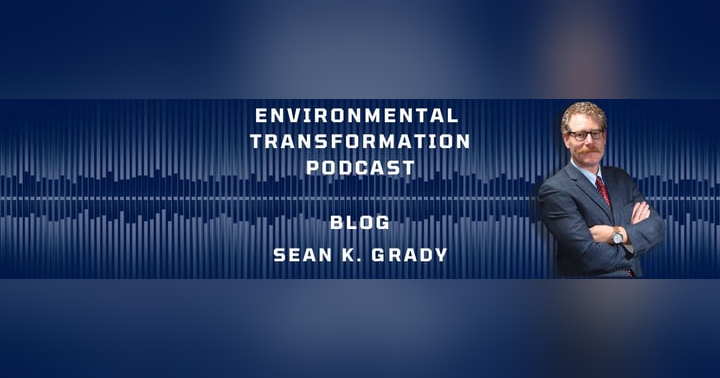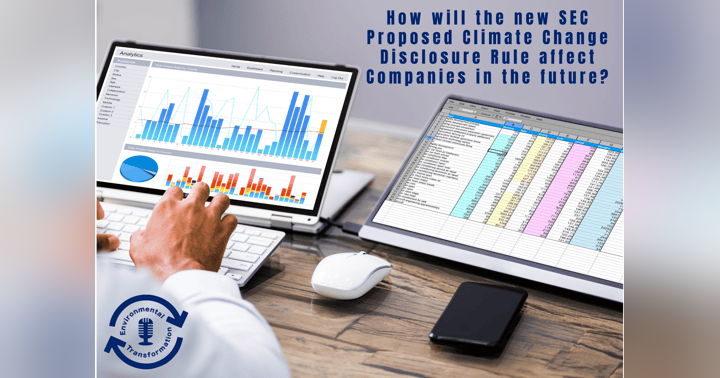Why should you obtain a Credential?

Why should you obtain a Credential?
That’s easy, skill development, professional recognition, career advancement, and higher pay. According to a recent salary survey, the median annual base salary of individuals holding a credential is $100,000, about 20 percent greater than the median annual base salary of survey respondents who held no certification; $83,000.
As I entered the second phase of my environmental career as a professional consultant, I wanted to be taken seriously. I had recently spent eight years working as a regulator for a state environmental agency learning all the various regulatory frameworks associated with Air, Land, Waste and Water. I was knowledgeable about how agencies worked and how they approached interactions with private industry, especially around environmental compliance, and site remediation. That valuable experience really helped me take the leap and jump into consulting.
However, once I became a consultant, I realized there was a whole different way of working with agencies and how to approach them on behalf of your client. One thing that amazed me was the amount of work a Project Manager (PM) was responsible for. The PM was responsible for everything and it included:
- client engagement and communication,
- proposal development and cost estimating,
- business and financial management (invoicing and collection),
- managing scope creep and change orders,
- development of work plans (Health and Safety Plans, Sampling and Analysis Plans, etc.),
- subcontractor management,
- report preparation and strategic design recommendations,
- delegation and management of staff duties,
- regulatory interruptions, and
- risk minimization and management.
The tasks and responsibilities were extensive, and I am probably leaving out few. Bottom line, my new role as a PM wasn’t really the same compared to my role as a PM at the state agency. I had more on my plate now more than ever. I loved my time as a regulator and really enjoyed the atmosphere and the people I worked with, but I wanted to earn my potential and I couldn’t do that at the environmental agency.
What I also quickly realized in consulting was if you were not a Professional Engineer (PE), or a Professional Geologist (PG), you were lower on the pecking order and were somewhat discounted and considered inferior to other environmental professionals who had these professional licenses. So, I began to look for other ways to increase my profile within my profession without being a PE or a PG.
During my time as a regulator, I became aware that there were several professional credentials in the industry that could help individuals advance their knowledge in a particular area like Hazard Materials Management, Dangerous Goods Management, Safety, or Industrial Hygiene that could also bring recognition to their achievements. That’s when I decided to pursue my Certified Hazardous Materials Manager (CHMM) credential. As a biology major in college, I had studied all the major STEM subjects (biology, chemistry, mathematics, physics, ecology, anatomy and physiology, and psychology). However, I didn’t study engineering or geology, so obtaining an industry credential was the only way for me to elevate my profile amongst my peers.
The CHMM credential was the number one environmental credential that wasn’t safety focused and touched on all phases of the environmental industry and was the most appropriate for the type of work I was doing. In 2005, I took a prep course and studied for the test. Well, I didn’t pass it and I was shocked! I figured out that I missed passing by two questions. So, I doubled down and studied more and took the test again a month later and passed. Boy was I happy. The test was hard and nowadays the test is even harder because of all the new regulations that the EPA has added over the past 16 years.
Obtaining my CHMM credential helped me learn the value of hard work and dedication of achieving a goal. It also made me a much more competent environmental professional. I also received a nice pay increase from my employer because it was part of my professional development plan. I instantly raised my professional profile within the industry with that credential behind my name.
You see the CHMM credential is issued by the Institute of Hazardous Materials Management (IHMM) and accredited by the American National Standards Institute (ANSI). That means it’s a legitimate credential because of its thorough and rigorous course curriculum recognized by industry, federal, and state agencies across the country. There are also professional organizations like the Alliance of Hazardous Material Professionals (AHMP) and Air and Waste Management Associations (AWMA), etc. that provide a community network for members and provide continued educational training opportunities for credential holders. I have made some great friends through my involvement in these organizations.
If you are seeking to advance your career and get that promotion, increase your regulatory knowledge, gain professional recognition, and get paid more money, then I highly recommend you obtain an industry credential like the CHMM, the Certified Dangerous Goods Professional (CDGP), the Certified Safety Professional (CSP), or the Certified Industrial Hygienist (CIH) credential. You will not regret it and you will find a community of liked minded individuals who support each other and who care about the environment. Are you ready to Level Up? What are you waiting for? Get started today!
Sean K. Grady, CHMM


